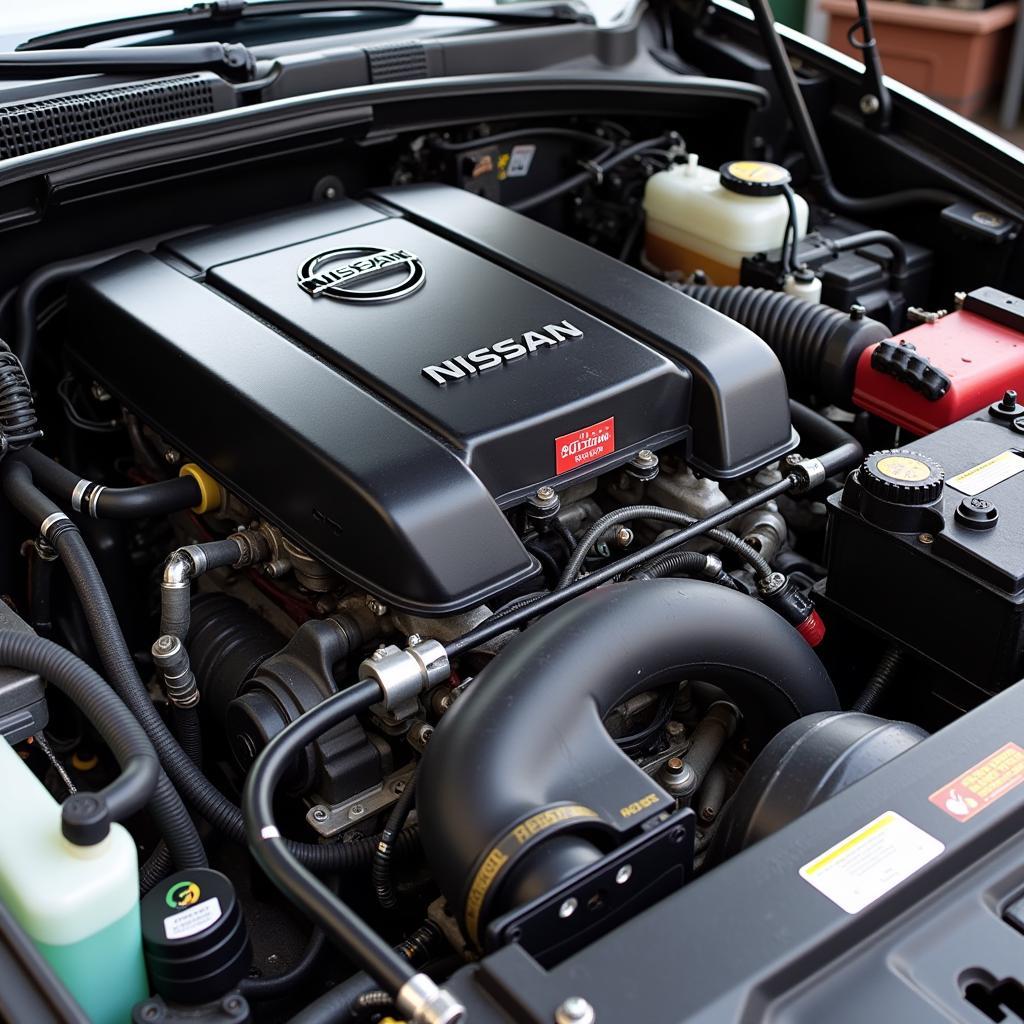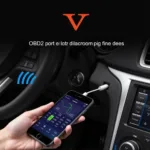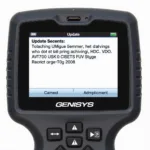Thinking about converting your Nissan from OBD1 to OBD2? It’s a popular upgrade, especially for owners of older Nissan models built before 1996. While it might seem daunting, understanding why this conversion is beneficial and the steps involved can make the process smoother. This guide is tailored specifically for Nissan owners and provides a comprehensive look at everything you need to know about OBD1 to OBD2 conversions.
So, what’s the big deal with OBD systems? On-Board Diagnostics, or OBD, is essentially your car’s way of communicating its health. OBD1, the older system, uses basic codes and might require clunky equipment for diagnosis. On the other hand, OBD2, introduced in 1996, offers a standardized system with more detailed codes and easier access to information, making it much simpler to diagnose and fix issues.
Why Consider an OBD2 Conversion for Your Nissan?
There are compelling reasons why Nissan owners, particularly those with older models, consider making the switch:
- Improved Diagnostics: OBD2 offers more comprehensive diagnostic capabilities compared to its predecessor. It provides a wider range of diagnostic trouble codes (DTCs), giving you a more precise understanding of your Nissan’s health.
- Easier Troubleshooting: With a broader range of DTCs and standardized diagnostic connectors, troubleshooting problems in your Nissan becomes more straightforward.
- Emission Testing Compliance: In many states, vehicles must pass an OBD2 emissions test. If you’re running an older Nissan with OBD1, converting to OBD2 ensures you comply with these regulations.
- Access to Modern Scanners and Tools: OBD2 allows you to use a wide array of modern diagnostic scanners and tools. These provide real-time data and insights into your engine’s performance.
Is Converting Your Nissan to OBD2 Difficult?
While the process varies depending on your Nissan model and year, the general steps involved remain relatively similar. However, it’s important to note that some mechanical aptitude is needed.
 Nissan Engine OBD Conversion
Nissan Engine OBD Conversion
Essential Components for a Nissan OBD1 to OBD2 Conversion
- OBD2 ECU (Engine Control Unit): This is the brain of your engine management system. You’ll likely need an OBD2-compatible ECU that matches your Nissan’s model and year.
- OBD2 Wiring Harness: This connects your ECU to various sensors and components in your engine bay. You’ll need a harness compatible with both your new OBD2 ECU and your Nissan’s existing wiring.
- Oxygen Sensors: OBD2 systems typically require multiple oxygen sensors for optimal performance and emissions control.
- Catalytic Converter: An OBD2-compliant catalytic converter might be necessary to meet emissions standards, especially in regions with strict regulations.
Understanding Nissan OBD1 to OBD2 Conversion Costs
The cost of converting your Nissan from OBD1 to OBD2 can vary greatly depending on your Nissan’s model and year, the specific components required, and whether you choose to tackle the conversion yourself or hire a professional mechanic.
- DIY Route: If you have the technical know-how and access to the necessary tools, a DIY conversion is often the most budget-friendly. Costs for parts can range from a few hundred to over a thousand dollars, depending on the sourcing of components and the complexity of your Nissan’s system.
- Professional Installation: Opting for a professional mechanic to handle the conversion will invariably be more expensive due to labor costs. However, it provides peace of mind knowing that the conversion is done correctly and safely.
Making the Decision: Is OBD2 Right for Your Nissan?
Converting your Nissan to OBD2 can be a worthwhile investment, especially if:
- You own an older Nissan model approaching the age for emissions testing.
- You’re experiencing frequent engine issues and want access to more advanced diagnostics.
- You’re comfortable with the potential costs and complexities involved.
Before making a decision, it’s essential to weigh the pros and cons carefully. If you’re unsure, consulting with a trusted mechanic specializing in Nissans is always a prudent step.
Frequently Asked Questions (FAQs) about Nissan OBD1 to OBD2 Conversions
Q: Can I perform an OBD1 to OBD2 conversion myself?
A: While possible, it requires a good understanding of automotive mechanics and electronics.
Q: Will converting to OBD2 improve my Nissan’s performance?
A: While the conversion primarily focuses on diagnostics and emissions, it can indirectly contribute to improved performance by allowing for more precise engine monitoring and adjustments.
Q: Where can I find compatible parts for my Nissan?
A: Reputable auto parts stores, online retailers specializing in Nissan parts, and even salvage yards can be good sources for conversion components.
Q: Do I need to inform my insurance company about the conversion?
A: It’s a good practice to inform your insurance company about any significant modifications made to your vehicle, including an OBD conversion.
Q: How long does an OBD1 to OBD2 conversion typically take?
A: The time frame can vary widely depending on the complexity of your Nissan’s system and the experience level of the person performing the conversion.
Need more help? Contact us on WhatsApp: +1(641)206-8880, Email: [email protected]. Our 24/7 customer support team is always here for you.

